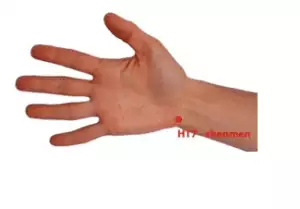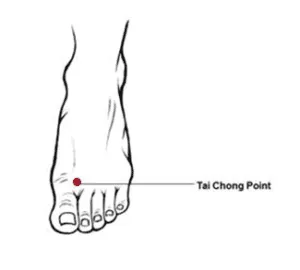-
 Art of Wellness Acupuncture & Traditional Chinese Medicine (TCM)11704 Wilshire Blvd, Suite 295, Los Angeles, CA, 90025
Art of Wellness Acupuncture & Traditional Chinese Medicine (TCM)11704 Wilshire Blvd, Suite 295, Los Angeles, CA, 90025
myartofwellness@gmail.com310-451-5522 Office Hours
MonClosedTue7:30 am --4 pmWed7:30 am --4 pmThu7:30 am -- 4 pmFri7:30 am -- 4 pmSat7:30 am -- 4 pmSunClosedOur office opens from Tuesdays to Saturdays 7:30 am to 4 pm, will be closed on Memorial day, Independent day, Labor day, Thanksgiving day, Christmas and New year.
-
Recent Posts
- Chinese New Year 2026: Year of the Horse
- Acupuncture and TCM Treatment for Perimenopause Symptoms
- How to Treat Insulin Resistance With Acupuncture and TCM
- How to Treat Metabolic Syndrome With Acupuncture and TCM
- How to Treat Syncope With Acupuncture and TCM
- How to Treat Thoracic Outlet Syndrome With Acupuncture and TCM
- How to Treat Dupuytren’s Contracture With Acupuncture and TCM
- How to Treat Nutcracker Syndrome With Acupuncture and TCM
- How to Treat Rosacea With Acupuncture and TCM
- How to Treat Perioral Dermatitis With Acupuncture and TCM
- Lymphatic Drainage With Acupuncture and TCM
- How to Treat Turf Toe With Acupuncture
- How to Treat Nerve Pain With Acupuncture and TCM
- How to Treat Watery Eyes With Acupuncture and TCM
- How to Treat Ovarian Cysts With Acupuncture and TCM
- How to Treat Dystonia With Acupuncture and TCM
- Sign up to receive news and updates and get my free report:“The Top 10 Reasons to Try Acupuncture”

November 2025 M T W T F S S 1 2 3 4 5 6 7 8 9 10 11 12 13 14 15 16 17 18 19 20 21 22 23 24 25 26 27 28 29 30
Stress
How to Treat High Blood Pressure With Acupuncture & TCM
By Qineng Tan, L.Ac., Ph.D. & Xiaomei Cai, L.Ac., Ph.D.
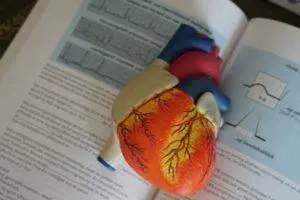
What is high blood pressure? Blood pressure (BP) is the force with which blood, pumped by the heart, pushes against the inner walls of the arteries and veins. When this force is consistently high, it puts a strain on the delicate tissues of the blood vessels and makes your heart work harder. This is also called hypertension. Most people take medications to control high blood pressure. In this article we’ll discuss how to manage high blood pressure with TCM and acupuncture.
High blood pressure is very common in older adults; about half of people over the age of 60 have high blood pressure. It is very important to have your doctor regularly monitor your blood pressure, because high blood pressure, if left untreated, can lead to heart disease, arrhythmia, heart attack, stroke, kidney disease, and many other serious, life-threatening conditions.
Your blood pressure reading is made up of two parts: systolic, which measures the force of blood being pumped away from the heart, and diastolic, the force of blood moving in between heart beats, when blood is flowing back into the heart. A normal blood pressure reading is usually considered 120/80 (systolic over diastolic). A consistent reading of BP over 130 would indicate hypertension stage 1, while a BP over 140 would be classified as hypertension stage 2. A BP over 180 signals a hypertensive crisis, and should be treated as an emergency, as it could lead to a stroke or other serious organ failure.
People with high blood pressure are advised to make lifestyle changes, including following a healthier diet, getting more exercise, and quitting smoking. Even a modest weight loss of ten pounds or so can make a big difference to reduce high blood pressure. Most people end up taking antihypertensive medications to lower blood pressure, often for the rest of their lives. Integrative care for high blood pressure that includes acupuncture treatment and herbal supplements according to TCM principles can provide natural remedies for high blood pressure, restoring the health of the circulatory system so that it might not be necessary to take drugs indefinitely.
Signs of High Blood Pressure
In many cases, there are no clear signs that a person has high blood pressure. Most people do not realize they have high blood pressure until it is measured by a medical professional. While people may think that a flushed, red face, or bouts of dizziness are symptoms of high blood pressure, these sorts of signals are not necessarily directly caused by high blood pressure. A flushed face caused by dilated blood vessels can happen for many reasons, usually because of a temporary rise in blood pressure due to heat, or cold weather, physical activity, spicy foods, hot drinks or alcohol, or a reaction to cosmetic skin products. Dizziness can actually be related to the side effects of medications prescribed for high blood pressure. The only way to know for sure is to check your blood pressure.
Many older people, especially women, with high blood pressure, experience bouts of dizziness that may be part of a hypertensive crisis – a sudden increase in blood pressure that can cause temporary dizziness or vertigo, tinnitus (ringing in the ears), or headache. A hypertensive emergency is sometimes the reason that a person visits a doctor to have a blood pressure check. It may be that hypertension has an effect on the peripheral auditory and vestibular systems, which can affect a person’s sense of equilibrium and orientation in space. High blood pressure can also contribute to problems with memory or cognitive function.
Top 10 Causes of High Blood Pressure
Many factors can lead to high blood pressure. Aging is one factor. If there is a family history of hypertension, you may be genetically predisposed to having high blood pressure, too. Other risk factors also increase the chances of high blood pressure:
- Smoking
- Diet high in salt and/or fat
- Lack of exercise, sedentary lifestyle
- Being overweight
- Stress
- Too much alcohol consumption
- Sleep apnea, snoring
- Thyroid and adrenal problems
- Kidney problems
- Diabetes
Medical diagnosis and treatment for high blood pressure don’t really focus on finding a root cause of the problem. General guidelines for eating less salt and fat, losing weight, and finding ways to reduce stress may help people reduce high blood pressure, but for most people, modest lifestyle modifications aren’t enough to solve the problem.
High Blood Pressure During Pregnancy
Some women develop high blood pressure during pregnancy. Called gestational hypertension, this occurs when a woman has elevated blood pressure during the last 20 weeks of pregnancy. While this type of high blood pressure usually goes away after birth, it can be an indicator of becoming hypertensive later in life. In some cases, having high blood pressure while pregnant can cause problems, such as fetal growth restriction, which may happen if not enough nutrients are being carried to the growing fetus through the blood vessels. If high blood pressure and high levels of protein in the urine are both detected, a woman may have preeclampsia, a serious problem that is believed to be caused by restricted blood flow to the placenta. Women with high blood pressure during pregnancy are more likely to experience preterm birth and to have unplanned delivery Caesarean section.
Conventional treatment for gestational hypertension typically involves monitoring and managing high blood pressure with medications. While not many clinical studies have been done regarding acupuncture treatment for gestational hypertension and preeclampsia, TCM has been used to treat high blood pressure and complications of pregnancy for thousands of years. From the TCM point of view, high blood pressure during pregnancy may be due to a deficiency of Liver and/or Kidney Yin, or rising Liver Yang energy in response to a Kidney Yin Deficiency, or Blood or Yin Deficiency. A TCM provider would use diagnostic methods to determine the differentiation and use acupuncture points to nourish the appropriate organs, promote better flow of Blood and Qi, and to help alleviate stress.
How to Control Blood Pressure with Acupuncture and TCM

Naturally, for many centuries, TCM practitioners had no way of measuring blood pressure with medical devices. They depended on observations of people’s symptoms, appearance, and careful checking of the pulse by hand. Thus, TCM does take into consideration the patient’s feelings and experience of symptoms of high blood pressure like:
- Dizziness or vertigo
- Palpitations
- Headache
- Fatigue
- Shortness of breath
- Weakness in the knees
- Memory loss
- Vision loss
TCM views dizziness as being a result of too much Liver Yang energy, stagnant Phlegm, Liver-Kidney deficiency, and deficiency or stagnation of Blood and Qi. Hypertension type headaches are caused by the addition of Fire energy coming from the stomach or intestine. Liver Fire can cause irritability and flushing in the face, while Heart Fire can cause chest distress, nervousness, and insomnia. Weakness and fatigue would be caused by the addition of Dampness and accumulated excess fluid. Fluid retention can lead to a distended abdomen, edema, and low back pain.
TCM philosophy also takes into consideration the emotional state as it relates to the physical health of the body. More recent scientific research also confirms that feelings of anger stimulate the sympathetic nervous system and contribute to high blood pressure and heart disease. Finding practices that help how to control anger and find calm are another important part of managing high blood pressure.
A TCM practitioner can treat all of these various symptoms with a combination of acupuncture treatment and herbal supplements individually customized for each patient’s specific circumstance.
One randomized study compared patients receiving acupuncture versus patients receiving sham acupuncture to treat hypertension over a six-week period. The patients who had real treatments showed significantly lower daytime and nighttime blood pressure readings. Another study showed that acupuncture treatment given to patients in conjunction with antihypertensive medications showed significant reduction in both systolic and diastolic BP readings.
As the results of this research study of many clinical trials concluded, regular acupuncture treatments have the effect of reducing blood pressure, with the effects lasting several days after each treatment. Acupuncture treatment generally has a cumulative effect, and it is necessary to stick with it to get results. It is also crucial that you work with your healthcare practitioner to determine which dietary changes and forms of exercise will best help how to reduce high blood pressure.
Acupuncture Near Me for High Blood Pressure
Managing high blood pressure takes commitment to making long-term lifestyle changes and regular monitoring. Adding acupuncture and TCM to your integrative care regimen may help you reduce high blood pressure, improve related problems like fatigue, dizziness, and headache, and avoid more serious health problems down the line.
*This article is for education from the perspective of Traditional Chinese Medicine only. The education provided by this article is not approved by FDA to diagnose, prevent, treat and cure human diseases. It should not stop you from consulting with your physician for your medical conditions. Traditional Chinese Medicine is based on Qi, which is an invisible force that usually cannot be observed by modern science. Because science focuses on testing ideas about the natural world with evidence obtained through observation, these aspects of acupuncture can’t be studied by science. Therefore acupuncture and Chinese herbs are often not supported by double-blind, randomized trials, and they are considered alternative medicine therapies in the United States.
How to Treat Panic Attacks With Acupuncture and TCM
By Qineng Tan, L.Ac., Ph.D. and Xiaomei Cai, L.Ac., Ph.D.
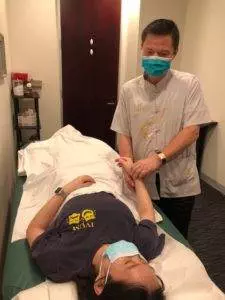
A panic attack is a sudden, overwhelming sense of fear that causes an intense emotional and physical response, often including trouble breathing, heart or chest pain, sweating, and dizziness. One way to get help for panic attacks and relieve the effects of long-term stress is with acupuncture and TCM.
Anyone might have one or two panic attacks in their lifetime. When a person has attacks frequently, they may be diagnosed with panic disorder. Most typically, this disorder arises when a person is in early adulthood, but panic attacks can also occur in children and adolescents. For people who experience panic attacks, quality of life can be greatly reduced, as the haunting worry that another episode may come on unexpectedly at any time may cause them to begin limiting their activities. In some cases, panic disorder with agoraphobia, a psychological condition in which a person is so afraid of entering into situations where they feel unsafe that they begin to avoid going out, go hand in hand together. Panic attacks are also often related to anxiety, depression, and obsessive-compulsive behaviors.
When a person seeks out medical care, panic attack treatment usually involves a combination of cognitive behavioral therapy (CBT) and prescription psychiatric medications like antidepressants (zoloft for panic attack) or tranquilizers. This combination of therapy may help reduce the frequency and severity of panic attacks, but these types of drugs can come with side effects and start a dependency. TCM and acupuncture offer natural remedies for panic attack that work quickly; many patients begin to feel better after their very first treatment.
Top 10 Signs of a Panic Attack
A panic attack comes on suddenly, instilling an intense feeling of dread that typically peaks within ten minutes, then begins to dissipate.
A panic attack is medically defined as involving at least four of these symptoms:
- Accelerated heart rate, palpitations, sensation of heart pounding or racing
- Trembling, shaking
- Sweating, hot flush, or chills
- Feeling that you can’t catch your breath or are choking
- Chest pain or tightness
- Nausea, upset stomach
- Feeling faint, dizzy, light-headed
- Numbness or tingling (paresthesia)
- Feeling detached
- Fear of losing control or dying
The symptoms associated with panic attack are very scary and similar to other, potentially life-threatening conditions, such as a heart attack or an asthma attack. People with panic disorder often feel they must organize their lives around the fear of having another attack. Some people may repeatedly seek out emergency care when in the throes of an attack because they are very seriously afraid that they may be dying.
Panic Attack Causes
The exact cause of panic attacks is not completely understood by medical science. In some instances, panic attacks are brought on by specific psychological triggers, such as having to take a test, flying, or being in a crowded or tight space. Some people experience a panic attack while driving. But many people have panic attacks for no apparent reason, sometimes even being awakened from sleep with a racing heartbeat (nocturnal panic attack or panic attack in the middle of the night). It is believed that some people are more prone to extreme stress responses, and this condition does seem to run in families, so genetics may play a role. The physical signs of stress and anxiety are the body’s way of reacting to danger. The sympathetic nervous system causes the adrenal glands to produce hormones that stimulate that “fight or flight” feeling of energy. When a person has gone through a prolonged period of chronic stress, or experienced a trauma, the system can become unbalanced, and he or she may feel an extreme version of this chemical response flooding the body, even though there is no immediate danger.
How Is Panic Disorder Different From Anxiety?
Panic disorder is considered to be a type of anxiety disorder, but it is differentiated from Generalized Anxiety Disorder (GAD). Panic attacks are similar to anxiety in the sense that both can cause emotional feelings of fear and dread and physical sensations of a fast heartbeat and difficulty breathing. They are both health conditions related to the long term mental and physical effects of stress. The difference is that a panic attack is more extreme in its intensity and lasts for a short period of time, whereas anxiety is a pervasive, uncomfortable feeling that goes on and on.
Panic Attacks During Pregnancy
Pregnancy is an emotional time, and most women have some feelings of worry. However, some women experience more serious anxiety and panic attack while pregnant. These feelings should definitely be addressed, as documented studies have shown that women who suffered panic attacks during pregnancy were more likely to experience preterm birth and/or deliver an infant who is small for their gestational age.
Panic episodes may also manifest during the postpartum period, especially among women who have just given birth to their first child. This may be at least partially due to the sudden fluctuation of hormones that occurs after birth. Acupuncture and natural herbs for anxiety and panic attack offer an effective way of dealing with panic attacks during pregnancy and after.
How to Stop Panic Attacks With Acupuncture
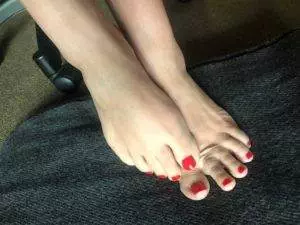
The idea of a mind-body connection is still rather new in western medical thought, but the belief that the physical, emotional, and spiritual are all inextricably intertwined has been part of Traditional Chinese Medicine theory for thousands of years. According to TCM, emotional energy can build up in the body; if it isn’t released, it can cause imbalances.
Fear causes Qi, the life force energy that flows through the body, to move downwards; this is what causes sensations of light-headedness and disorientation. Fear is related to the kidneys, which are involved in the release of adrenaline and cortisol in response to stressors. Anger and frustration are related to the liver, grief is related to the lungs, and worry is related to the spleen. After a thorough consultation to understand the nature of an individual’s panic attack patterns, an acupuncture practitioner may choose points to work upon the appropriate organ systems to encourage the smooth flow of Qi. Acupuncture treatment has been shown to help balance levels of cortisol and serotonin, which will help even out the emotional state and regulate the body’s stress responses.
Herbal supplements and nutrition are key components of comprehensive TCM management of panic attack. Your acupuncturist will likely formulate a specific combination of herbs that will help support the kidneys and other organs, as well as giving directions as to what foods will be most and least beneficial to help resolve the chronic effects of stress underlying the panic disorder.
Top 5 Tips for Calming Down From a Panic Attack
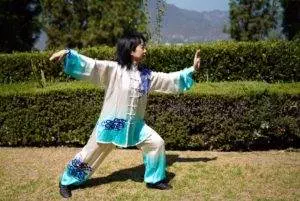
The best help for panic attacks is to focus on breathing. Disciplines that help you learn how to control breathing and be present in the moment, such as meditation, Tai Qi, and yoga, are excellent for helping to prevent a panic attack trigger from leading to a panic attack severe enough to disrupt your life.
- Practice breathing: find a type of breathwork that you find inspiring. It might be a simple meditation app that you use before bed at night, or it might be a challenging yoga practice that takes you outside of your comfort zone. It can be therapeutic to learn to breathe through discomfort so that when you are triggered, you can be more adapted to coping with a panic attack.
- Acupressure: stimulating specific acupressure points on the body can help relieve stress and dissipate panicky feelings. One good point to try for acupressure for panic attack is L-3, sometimes called the “Great Surge,” which refers to big rushes of energy that move up through the body when we feel stressed. This point is located on the top of the foot, between the tendons of the big and second toes, about an inch up from the base of the toes. Pressing deeply into this area and rubbing helps to control feelings of anxiety. This point is useful for times when you are in the middle of something (maybe a Zoom meeting?), as you can use the toe or heel of one foot to press the L-3 point on the other foot.
- Eat foods high in B vitamins: B vitamins support the nervous system, so it’s important to emphasize them in your diet. Foods high in B vitamins include: leafy greens, beans, turkey, salmon, eggs, and nutritional yeast.
- Avoid sugar, coffee, and alcohol. These substances create excess heat in the body, which can contribute to feelings of anger and frustration. Alcohol and panic attacks, and caffeine panic attack can be helped by drinking more water and herbal teas instead.
- Self-talk: Many people with anxiety, depression, or panic disorder are stuck in a loop of thinking negative thoughts. When a panic attack strikes, a person start thinking, “this is a disaster,” or “I’m dying.” Practice telling yourself what to say for preventing a panic attack, such as “this is just anxiety,” or “this will be over soon.” Look for something near you to focus on instead, and ground yourself by naming it.
There may be no simple panic attack cure, but with acupuncture treatment and herbs, good nutrition, exercise, and positive affirmation, it is certainly possible to reduce the frequency and severity of panic attacks.
Acupuncture Near Me to Help for Panic Attacks
If you or a loved one suffer from panic attacks, make an appointment with your doctor for medical advice. You can also seek alternative medicines and or treatments, such as acupuncture and TCM in your area. At Art of Wellness, our doctors have over 30 years of experience helping people overcome stress, anxiety, and panic attacks naturally.
*This article is for education from the perspective of Traditional Chinese Medicine only. The education provided by this article is not approved by FDA to diagnose, prevent, treat and cure human diseases. It should not stop you from consulting with your physician for your medical conditions. Traditional Chinese Medicine is based on Qi, which is an invisible force that usually cannot be observed by modern science. Because science focuses on testing ideas about the natural world with evidence obtained through observation, these aspects of acupuncture can’t be studied by science. Therefore acupuncture and Chinese herbs are often not supported by double-blind, randomized trials, and they are considered alternative medicine therapies in the United States.
How to Treat Fatigue With Acupuncture and TCM
By Xiaomei Cai, L.Ac., Ph.D. and Qineng Tan, L.Ac., Ph.D.

With so much going on in our lives these days, it is no wonder that many of us feel exhausted and tired all the time. Stress and lack of sleep are so common now that many people are easily tired. But when it gets to the point that a person is always tired, so much that he or she never feels rested and has trouble engaging in normal daily activities, fatigue becomes a serious health concern that requires attention.
Extreme fatigue is a mental and/or physical lack of energy that goes beyond normal tiredness. Physical or muscle fatigue prevents a person from engaging the body in the ways he or she is used to being able to, while being mentally exhausted causes sleepiness and an inability to focus the mind enough to perform one’s usual tasks. Transient or acute fatigue occurs when a person is deprived of sleep over a few days. In general, it is recommended that adults get 7-8 hours of sleep per night. However, a large published report showed that more than a third of Americans regularly sleep less than seven hours per night. Poor sleep habits do more than cause excessive tiredness; they can lead to all kinds of chronic health problems.
Conventional medicine has a limited understanding of fatigue causes, and does not offer much in the way of solutions for fatigue symptoms. Whether fatigue is acute or chronic, acupuncture and TCM offer proven benefits without any negative side effects.
Causes of Chronic Fatigue
Constant fatigue and extreme exhaustion that last for more than three to six months may be signs of Chronic Fatigue Syndrome (CFS) or Myalgic Encephalomyelitis (ME). As a syndrome, CFS/ME is a collection of symptoms that are often seen together, but is not fully understood by the medical community as a disease. CFS symptoms include:
- Extreme exhaustion that is made worse with physical or mental effort (post-exertional malaise, or PEM), i.e., feeling completely spent after any exercise or mental stress
- Sleep is not refreshing
- Foggy head, cognitive impairment
- Joint pain
- Constant sore throat
- Swollen lymph nodes
- Severe headaches
- Extreme sensitivity to lights, noises, smells, foods and chemicals
It can be difficult for doctors to come to a firm diagnosis for different types of fatigue, partly because the symptoms are “invisible” and subjective, but also because there are other health conditions with similar symptoms, in particular fibromyalgia and lupus. The causes of chronic fatigue have not been fully identified, but it is believed that CFS can be triggered by infections, particularly deep candida infection, immune dysfunction, nutritional deficiencies, extreme stress, Epstein Bar virus (EBV, mono), or a combination of these factors. Some studies have indicated that people who experienced childhood trauma may have increased risk of developing CFS, and that psychological stress due to post traumatic stress disorder (PTSD) is linked to CFS.
As of now, conventional medicine has no officially approved treatment protocol for chronic fatigue. Generally, patients are instructed to rest, pace themselves while practicing gentle exercises, and learn to avoid triggers that make their fatigue worse. Doctors may offer medications to help insomnia and antidepressants to help with emotional instability, but these types of drugs can have negative side effects and create dependency. Traditional Chinese Medicine works on a deeper level to address headache, dizziness, fatigue, muscle and joint pain with fatigue, and eye strain symptoms.
Sometimes constant tiredness is attributed to adrenal exhaustion. Adrenal Fatigue Syndrome is not a formally recognized medical diagnosis, but this, too, is a collection of symptoms that is theorized to be related to chronically low levels of the adrenal hormone cortisol. Cortisol is produced in short bursts when we are under stress; this is often called the “fight or flight” response. Going through an extended period of stress might lead to the adrenal glands becoming depleted. People with adrenal fatigue symptoms like tiredness, trouble sleeping, and cravings often rely on caffeine and sugar to help them get that burst of energy. Adrenal fatigue treatment by TCM helps to naturally balance the hormones, while lifestyle modifications implemented over time help resolve feeling so tired all the time.
How Is Fatigue Related to Stress?
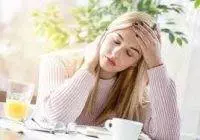
Clearly there are links between stress and fatigue. Stress is the body’s reaction to difficulties and situational changes. When stress builds up over time, the body and mind become exhausted. Chronic stress can lead to emotional exhaustion. Lack of focus and motivation leads to poor decision making, and then a person can no longer take proper care of herself and her loved ones. Mental health issues such as anxiety, depression, and PTSD become intrusive and disruptive to daily life. In today’s world, we are all subjected to many stressors every day. Simply processing a constant onslaught of new information on top of all of the other things we are expected to manage is bound to cause mental fatigue. Feeling overwhelmed is the new normal, but in order to prevent it from becoming a serious health problem, we need to address emotional fatigue.
How Is Fatigue Related to Sleep Problems?
We need nourishing food and restful sleep to function optimally. If an individual does not prioritize healthy eating and getting enough sleep, eventually the body becomes seriously depleted. Feeling tired after eating is a sign that one might be eating the wrong foods, or at the wrong times. Extreme fatigue after eating is also an indicator that when a person does sleep, he or she is not getting good quality sleep. Working on behavioral modifications to improve sleep quality is certainly an important part of addressing fatigue, as is finding a physical activity program that improves energy.
How Is Fatigue Related to Hormones and Women’s Health?
Women often experience fatigue as they go through hormone changes. Feeling lethargic due to PMS, PMS fatigue or period fatigue is common. Fatigue during pregnancy can cause women to feel weak and tired. Women going through menopause commonly feel over tired. These types of hormone related fatigue can be helped by balancing the hormones with acupuncture and herbs.
How Can Acupuncture Help to Fight Fatigue?
The most fundamental concept of Traditional Chinese Medicine is that of “Qi,” the life force energy that flows through the body. According to TCM, fatigue is related to the quantity and quality of Qi a person is able to maintain. Qi deficiency, then, is the primary cause of fatigue. Deficiencies can show up in different ways:
- Spleen-pancreas – This is the organ system that directs digestion. When this is weak, people might feel bloated after eating, tend toward loose bowels, feel weak and depressed, and bruise easily. This can be due to erratic eating patterns, especially too many sweets. Worrying or over-thinking can also be part of the problem. Many people go through stressful periods when they exhibit these behaviors and symptoms.
- Lung – The lungs do the job of extracting Qi from the air we breathe. Sometimes lung Qi is weakened when we do a lot of talking as part of our work without taking enough breaks. Emotions of grief and sadness can also weaken the lungs. This may present as being prone to coughs or colds.
- Blood Deficiency – This often goes together with Qi deficiency. A heart-related blood deficiency can lead to feelings of anxiety and restless sleep. A liver-related blood deficiency can cause eye strain symptoms.
- Yang Deficiency – Lack of heat energy in the body causes weakness with body aches and fatigue. This differentiation can cause menopausal fatigue and low back pain.
An acupuncture practitioner will first perform a thorough consultation and exam to identify the specific symptoms of fatigue and the factors potentially causing them. A course of treatment might include not only acupuncture to stimulate points along the meridians, but also moxibustion, a topical therapy used to cultivate warm energy.
One formal study of patients diagnosed with CFS showed significant improvement in both physical and mental fatigue among participants who received daily acupuncture over the course of ten days.
Another study of chronic fatigue patients who were given acupuncture as a complement to conventional treatment showed greater improvement over patients who did not receive acupuncture.
Acupuncture has been shown to increase serotonin levels, which help improve sleep and mood. This means it can be an effective treatment for fatigue and depression, without the side effects and dependence that are often caused by SSRIs (antidepressants that work on serotonin levels in the brain).
Chinese herbs are used in customized combinations to address imbalances in the organ systems. TCM herbal remedies are an integral part of treatment for chronic fatigue, and should be combined with your acupuncturist’s nutritional recommendations to nourish Qi and reverse fatigue.
Top 10 Tips to Beat Fatigue
While acupuncture treatment and herbal support will go a long way to combat fatigue, it is critical that patients make meaningful lifestyle modifications. New habits will not only improve symptoms of fatigue, but prevent exhaustion in the future.
- Timing is everything – The adrenal hormones will be more balanced if you follow natural circadian rhythms. This means, ideally, rising with the sun and going to bed well before midnight. Exercise early in the day rather than stimulating the body with activity in the evening. Stick with the same sleep routine, even on weekends and holidays.
- Cut caffeine – Drinking coffee or sodas to stay sharp is actually very detrimental to your health. Think of it as borrowing energy; you’ll have to pay it back later, with interest. If you are used to multiple caffeinated drinks per day, start by reducing them gradually. Then, take at least a few weeks off of caffeine entirely.
- Avoid Alcohol – Even though it may feel like a glass of wine helps you relax in the evening, alcohol has a negative impact on the quality of sleep, often causing you to sleep lightly and wake in the night. Again, start by cutting back, and try to abstain entirely until fatigue has improved.
- Drink more water – Dehydration reduces mental alertness and physical stamina. Drinking 8 glasses of water per day ensures that nutrients and oxygen are moving smoothly through the bloodstream and that toxins are being excreted properly. Don’t wait until you’re thirsty; by then, you are already dehydrated. Remind yourself to drink at regular intervals.
- Eat more frequently to maintain blood sugar levels and energy. Smaller meals eaten every 3-4 hours throughout the day

Walnuts are a great source of Omega-3s are better than 2-3 large meals.
- Get enough Omega-3 – Fatty acid supplementation has been shown to reduce symptoms in CFS patients. Good sources of Omega-3 fatty acids include: fish, fish oil, flaxseeds, chia seeds, hemp seeds, and walnuts.
- Short bouts of exercise – Even when the mildest exertion can be exhausting, it’s vital to establish and maintain regular physical activity. A short 15 minute walk outdoors will help get the blood pumping, and exposure to sunlight is crucial for getting Vitamin D to boost immune function.
- Qi Gong – This gentle form of exercise is part of the holistic health care system represented by TCM. The focused breathing and subtle movements of Qi Gong are designed to nurture Qi. Specific exercises will help to bring in more Qi, encourage Yang fire energy, and relieve stress.
- Yoga – Another practice that goes beyond physical exercise, yoga encourages specific breathing and meditation techniques that harness “Prana.” Similar to concept of Qi, Prana is life-giving energy that we can take into the body from the environment through deep breathing.
- Rest – Prioritizing rest means more than getting enough sleep at night. Change your mindset from one of constant “busyness” and productivity. Give yourself time to rest, read, meditate, listen to music, laugh, and just do nothing. If you have to convince yourself, remember, “doctor’s orders–I have to rest!”
Acupuncture Near Me for Dealing With Fatigue
Now more than ever, extreme stress, lack of sleep and activity, and constant triggering events can cause chronic fatigue. Fatigue is feeling more than tired; it can become a real health concern if you are so physically and mentally exhausted that you cannot get up and face your day. Do not hesitate to reach out for help. The doctors at Art of Wellness are TCM experts with over 30 years of experience helping patients heal unresolved traumas, restore balance and replenish their energy. Call today to get started with a treatment plan to banish fatigue.
*This article is for education from the perspective of Traditional Chinese Medicine only. The education provided by this article is not approved by FDA to diagnose, prevent, treat and cure human diseases. It should not stop you from consulting with your physician for your medical conditions. Traditional Chinese Medicine is based on Qi, which is an invisible force that usually cannot be observed by modern science. Because science focuses on testing ideas about the natural world with evidence obtained through observation, these aspects of acupuncture can’t be studied by science. Therefore acupuncture and Chinese herbs are often not supported by double-blind, randomized trials, and they are considered alternative medicine therapies in the United States.
How to Treat Stress with TCM and Acupuncture
by Qineng Tan, L.Ac., Ph.D.
Nowadays, we hear pretty constantly that everyone is “under a lot of stress.” But what is stress?

Stress is a natural reaction in the body to any difficulties or changes that we face in life. Stress affects health at every level: physically, mentally, and emotionally. Stress can bring a lot of negative effects to your health and your career. TCM and acupuncture offer a unique treatment to stress management without any of the side effects that anti-depression drugs cause. Acupuncture treatment often brings people immediate stress relief, as they leave the clinic feeling calm, relaxed, sometime even euphoric. But TCM and acupuncture can also provide meaningful reduction in the toxic effects of long-term stress over time.
In this article we will discuss stressors, stress symptoms, and how to combat the negative effects of stress on your body, mind and spirit.
What Are Stress Symptoms?
“But he was so young!” “But there wasn’t anything wrong with her!” Have you heard of someone you know–maybe a friend or a relative, maybe someone famous you admire–dying, suddenly? It’s hard to take it in; we don’t want to believe that these things can happen, especially when someone is only middle aged. It forces us to look at our own lives. Are we taking the time to take care of ourselves? Or are we rushing around from one crisis to another, always stressed out?
Stress is the body’s natural reaction to any difficulties that appear in our lives, physically or emotionally. It’s a normal response to adverse conditions. It’s actually healthy to experience some low-degree, short-term stress occasionally, because this lets the body practice protecting itself. Unfortunately, our modern lifestyle creates a lot of stressful situations for us to endure, and most people are not taught or encouraged to release the effects of stress from their bodies and minds. When stress builds up, it can lead to health problems. It may be that when you go to an M.D. who orders tests, nothing shows up in a scan or a blood test. But that does not mean you don’t have a serious problem.
Chronic stress can cause a variety of symptoms and illnesses and affect overall health and well-being. Many diseases, including cancer, can be linked to stress. Job changes, the illness or death of a family member, relationship issues, financial or business difficulties, caring for and educating children – we all face these stressors at one time or another. For some people, the problems begin in childhood. If a child experiences trauma–parents fighting, or bullying at school, for example–that kind of severe stress can develop into permanent health problems as he or she grows up.
What Does Stress Do to Your Body?
Stress can affect all systems in the body. It starts with the central nervous system and the endocrine system. When something unusual happens, the brain gets a signal: something needs to be done! The brain sends out a message, alerting the body to start producing hormones like adrenaline and cortisol. Adrenaline increases the heart rate, elevates the blood pressure and boosts energy supplies. Cortisone increases sugar in the bloodstream, enhances the brain’s use of glucose and increases the body’s ability to repair tissues.
The body’s initial reaction to stress is to protect itself. But if you are under this kind of stress constantly–think about it–your body will keep producing adrenaline, causing the heart to beat constantly at a high rate and keep the blood pressure high. Eventually, the body will become exhausted, leading to chronic fatigue, hypertension, diabetes, risk of stroke and heart attack. The lungs become vulnerable, which can trigger asthma, and allergic reactions such as eczema or hives rash. When the cortisone level is high, it causes a constant immune response. Eventually, the immune system becomes imbalanced.
When stressful periods are prolonged, the body can lose the ability to shut off the alert that says something is wrong: what we call the “fight or flight” response. Say you send a soldier to a war zone. The soldier’s job is to shoot the enemy. When the enemy approaches, the soldier starts to shoot. But if the soldier is there fighting for days, weeks, years, and his job is to keep shooting, at some point he stops recognizing who is an enemy or who is an ally. He will shoot anybody. Likewise, the body loses the ability to recognize what is good and what is not good. Stressful life events are often a main factor in the onset of an autoimmune condition, like ALS, MS, lupus, or rheumatoid arthritis. When a person has experienced shocking, perhaps life-threatening, events such as being attacked or surviving in a war zone, he or she may exhibit PTSD symptoms, depression, or panic attacks.
When a person is under chronic stress, the liver has to work much harder. We rely on the liver to clean the blood, but if it gets tired out, it can’t do its job. So toxins don’t always come from outside the body; they can come from stress, when the body becomes more acidic and toxic, increasing inflammation and risk of cancer. Liver Qi problems are a major factor in women’s health problems, including PMS and PMDD.
When we’re upset, the appetite changes, causing us to eat too much or too little, affecting our nutrition. Many digestive problems are related to long term stress: heartburn and reflux, ulcers, cramping, nausea, vomiting, obesity, constipation, bloat, IBS, diarrhea. Sometimes stress shows itself externally, on the surface of the skin, as with eczema or psoriasis.
Stress causes the muscles to become tight and makes the nerves more sensitive. This causes more pain and inflammation.
The reproductive system and the sex drive are, naturally, affected by hormone imbalances. For women, this can cause PMS, fertility issues related to ovarian function, blocked tubes, or unstable uterine lining, and more severe menopausal symptoms. For men, long term stress can cause the testosterone level to drop, the prostate and the urethra to become inflamed and prone to infection. With all of this, it is no wonder that libido and sexual function (erectile dysfunction) take a dive, too.
Stress Management by TCM and Acupuncture
TCM is based on the philosophy that the body, mind, and spirit are inextricably linked. It is only in recent years that Western science has begun to acknowledge the
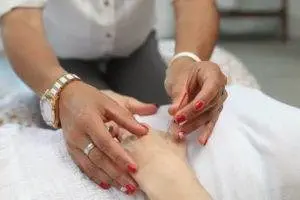
connection between the emotions and our physical health. In TCM, we always look at the whole person. If the emotions are out of balance, the body’s functions will be, too. Keep in mind that without a spirit, the body is nothing more than a container: a box. Likewise, if the body is not healthy, the spirit doesn’t have a good home to live in. That is why we treat stress, emotional fluctuations, and balance the body’s organ systems all at the same time with acupuncture.
Acupuncture is one great way to help you manage your stress and protect you from permanent health damage. Even though you may not be able to avoid stress, you do have the power to manage stress better so that it can’t build up, hurt you internally, and turn into serious health issues.
Top 7 Habits for Stress Relief
Every day, we encounter people and situations that cause frustration. Sometimes several minor incidents over the course of a day can build up until we feel we are at the end of our ability to cope. Other times, we are hit with a big problem that we have no choice but to face. These stressors are unavoidable. What we can do is pay attention to our responses, and train ourselves to respond more calmly when situations arise.
Here are some things you can do in your daily life to manage stress.
- Change the way you view problems. It is human nature to protect ourselves from danger by recognizing the negative energies coming at us. But we can become too accustomed to looking for the “dark side.”A lot of time we needlessly take things negatively. Say you wake up to the sounds of a bird, chattering in a tree. You can think, “Ah, the beautiful music of nature!” Or you can get annoyed. Same situation, different response. Learn how to think positively. Often I ask a patient to “show me your hand.” They show me the palm side, but don’t think to look at the back of the hand. In the world, nothing can exist that has one side only. This is the concept of Yin and Yang; nothing is only good or only bad. There is good and bad in everything. Learn to pay attention to both, but “accentuate the positive.”
- Connect yourself to nature; consciously choose to make yourself one with the Universe. Connect to energy outside of yourself by going to the mountains or the

Spending more time outdoors can help alleviate stress beach, walking barefoot on the sand and listening to the waves. Sit by a river and feel the flow of the water. When you feel anger inside, go out and face something – a mountain, or the woods – breathe out, remove that negative energy from your body, absorb positive energy; make that exchange. By doing this, you gain the perspective of playing a small, yet integral part within the greatness of the universe. This will release stress and give you new strength.
- Learn some techniques: Tai Chi, yoga, meditation, Qi Gong. Tai Chi, for example, trains you physically and emotionally at the same time, cultivating your internal Qi. Deep breathing will make your body more balanced and calm; exhale negative energy and inhale fresh air and energy.
- Engage in regular physical activity, especially cardiovascular varieties. Walk, jog, bike, swim. Going outdoors, getting fresh air and sunshine, is even more beneficial than going to the gym.
- Encourage yourself to engage in some social activity. Stress can cause sadness and depression. People tend to close themselves off. So, you must push yourself to go out, keep up your activities. Talking with friends will release the stagnation from your body and mind. Sign up to volunteer; helping other people will reduce your stress.
- Take time for a hobby. Whatever you enjoy: walking, swimming, reading, listening to music, going to dance class, fishing, golfing. Do it regularly. But it should be something active for your body or mind. Inactive pastimes– like watching television or playing video games, surfing the internet–may seem relaxing, but they can actually increase stress long term. Keep time spent on those passive activities to a minimum.
- Work on your sense of humor! When you laugh, you are happier and so are others around you. Be generous with your positive energy and others will be there to help you when you need it.
Managing stress will pay off, not only by making you happier, but probably also allowing you to enjoy a longer and healthier life. Practicing stress management will help you to recover from existing conditions and prevent other issues from becoming serious in the future. If you need treatment and look for acupuncture near me, come to our clinic Art of Wellness, Santa Monica, Los Angeles, CA. Our clinic is one of the top 19 pick among 825 similar clinics in the great Los Angeles area. Our doctors have over 30 years of experience of practicing TCM and acupuncture.
How to Sleep Better with Acupuncture and TCM
By Qineng Tan, L.Ac., Ph.D.
Do you suffer from insomnia or do you have trouble falling asleep and staying asleep? Acupuncture and Traditional Chinese Medicine (TCM) offers many solutions on how to sleep better without sleeping aids. TCM stresses the importance of getting a good night sleep. Chinese medicine has tools such as; exercise, Chinese herbal medicine, acupuncture, and meditation all which can help you get a good sleep so you can function at the highest potential throughout the day. Below you will read about TCM and the history it provides in regards to sleep and the many tips that can help you get the best sleep tonight.
History of Sleep with TCM
Sleep is a part of the interplay of yin and yang: yang energy is dominant when we are awake and active, and yin energy rules sleep. Night is yin; daylight is yang. This is all in keeping with the holistic, universal nature of TCM (Traditional Chinese Medicine) theory. Our bodies are designed to work with the movements of the earth, sun, and moon. When a person experiences insomnia, either hard to fall asleep or wake up often then difficult to fall back to sleep, there is a lack of balance. The body is out of sync with its environment. The yang energy is taking over, or not interplaying with yin appropriately.
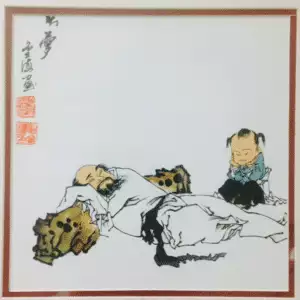
In TCM terminology, “Shen” is the spirit, the energy which controls our mental activities and thought. During sleep, Shen “hides” in the organs – predominantly the Heart and the Liver – resting, so that it can function with sharpness during our waking hours. Insomnia, in TCM, is often viewed, then, as a problem of the Heart system, or the Liver system. If one of these major organs is unable to “house” the Shen, then the Shen will wander restlessly, causing sleeplessness.
Protective Qi cycles through the body continuously, but it follows different paths along the meridians at different times of the day and night. During the day, protective Qi, which fights off pathogens, moves through the yang meridians, and during the night, it flows through the yin meridians. If you find yourself waking up at a particular hour in the middle of the night every night – or feeling sluggish at one particular time every day – it is probably related to some deficiency of Qi in that area.
Between the hours between 1:00 and 3:00 a.m. the liver meridian is actively supplying Qi to the liver system so that it can clean toxins from the blood. Then, between 3:00 and 5:00 a.m., the freshly cleaned blood and energy is being delivered to the organ systems. It is especially important to be sleeping soundly during that time. The liver does all the heavy lifting of cleaning and detoxifying the blood and therefore, the whole body. If the liver is stinted of its full rest and rejuvenation, night after night, we can be left feeling truly sick and tired.
Sleeplessness may be the central problem for some people; for others, it’s just a part of the big picture. Many people have gone so long without restful sleep that they have become used to it and just consider it their new “normal.” When you come in to Art of Wellness for a visit, our doctors will ask many questions to get a sense of what kind of sleep problems you’re having, including other symptoms that may be related to the same root issue.
- Having trouble falling asleep may be related to an excess condition of the liver and/or gall bladder.
- Waking easily and then having trouble falling back to sleep may point to a deficiency of the Heart Yin or too much internal heat.
- Nightmares may indicate a gall bladder meridian problem, while repetitive, literal dreams (about work, for example) might indicate a heart/spleen problem.
Sleep problems can be related to other conditions, such as depression, menopause in women, fibromyalgia, chronic fatigue syndrome, and cardiovascular disease.
How to Make Winter A Time of Rest and Renewal
Getting a good night sleep is always important, but in the Wintertime. Nature and our bodies are really asking us to rest more, and more deeply, than we do during other times of the year. This is a time for the body to store energy. If we go at a frantic pace, and behave the same way we do in the middle of summer, we will become depleted.
Unfortunately, our current culture does not necessarily support this idea. It seems we are asked to do more and be more than ever during the rush of the winter holiday season. It really is vital to prioritize “doing less” in order to preserve good health.
People with sleep problems seek tips for help. The practices in acupuncture and TCM help you to be calm. Visit the link and read some TCM tips for sleep.
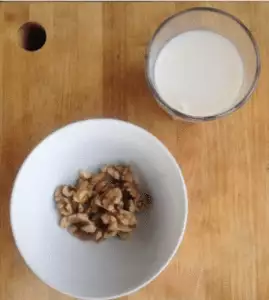
Top 20 Tips For Creating Calm so That You Can Get A Good Sleep
- Choose carefully how many social commitments you make. You don’t have to attend every gathering – only the ones that are meaningful to you. If it feels more like an obligation than fun, make a plan to stop in, extend your greetings, and then leave early. This way, you won’t overeat, drink too much, and you can still get to bed a reasonable hour
- Don’t exercise too vigorously close to bedtime. An evening walk, or gentle program of Tai Qi or yoga will help you work out excess energy with stimulating you further
- Deep breaking techniques: using you lower abdomen, inhale deeply. Hold it for about 5 seconds, and then exhale slowly through your mouth. Repeat ten times. Deep breathing exercises not only relax your mind, but they help to dispel negative Qi from the body before bed
- Create an oasis of calm in your bedroom, with good ventilation, restful colors and no devices. Set a time, half an hour to hour before going to bed, when you will discontinue watching TV or looking at your computer and phone. The light stimulus from the screen is not helpful for falling asleep. Reading a book, writing in a journal, coloring in a coloring book, are all activities that help you wind down for the night.
- Change your eating habits: many people wake up around 3 AM and find it difficult to fall back asleep. This may be cause by low blood sugar level due to the over activity for the adrenal gland. For a better sleep, try to balance your blood sugar level daily by eating small portions of food about every 3 hours and drinking a glass of warm, low fat milk or eating a handful of nuts—such as raw walnuts or almonds, before bedtime. It helps to balance your blood sugar. Waking up in the middle of the night can be caused by fluctuating insulin levels – the result of too much sugar or alcohol in the evening.
- Keep your feet warm by soaking them in hot water for 15-20 minutes before bedtime. Also, massaging the bottom of the feet can help to stimulate key kidney points. Give a good, fast rub to the center of your soles for a few minutes to warm them while getting into bed.
- Stimulating acupressure points just before bedtime can be helpful. Use your thumb or fingertip to apply moderate pressure and rotate clockwise for 2-3 minutes.
- Shen Men, called the “Spiritual gate” point, releases heart fire, excitement, anger, irritation and anxiety.
- Tai Chong, a liver point can help alleviate insomnia due to excessive heat or stagnation in the liver, which can cause feelings of depression, stress, sadness.
- Take off any constricting clothing (underwear), and wear loose, comfortable pajamas for bedtime.
- There is an old saying: “sleep like the crescent moon.” Sleeping in a fetal position on your right side puts your heart above your liver, which helps drain blood, giving the heart some relief and extra nourishment to the liver. It also helps food move through your digestive system properly.
- Keep away from interruptions: Turn off your phone after dinner or keep a note book by your bed. If you keep thinking about sometime important to do, write it down.
- Listen to calm and relaxing music
- Sleep and wake at the same time every day, yes that includes weekends. Do not stay in bed for too long even when you do not have to go to work. Your body needs to have a regular sleep-wake cycle in order to function at its maximum

Shen Men Point - Reduce the water temperature for baths and showers: when the water temperature is well about body temperature, your body heat increases. Then when you get out of the water, your body heat decreases. Try to avoid such fluctuation of the body temperature.

Tai Chong Point - Keep your bedroom simple and clean: limit the number of electronic devices such as TV’s, computers from your bed room
- Do not play video games at night
- Obey the 20-minute rule: if you do not successfully fall asleep in twenty minutes, get up and do something else until you feel tired and ready to sleep again.
- Waterfall Meditation. In this exercise, imagine yourself at the base of a waterfall. As you breathe in and out, picture the water gently raining down on you, trickling down each route until the tension inside you releases, allowing your entire body to enter a peaceful and relaxed state.
- Oneness Meditation. Just as in the Waterfall exercise, picture yourself standing beneath a waterfall. This time, however, instead of relaxing parts of your body one section at a time, allow your entire body to relax simultaneously. Let the image of the water wash away any stress or anxiety that burdens you.
If you have tried all of these things are still not sleeping well, please come see us to find the underlying problem. Acupuncture and herbs can help address and correct deeper issues that are affecting your ability to find rest and peace. If you find you are experiencing insomnia or any other sleep disturbance, seek out solutions. Left unaddressed, a sleep problem can become chronic and debilitating. Talk to us, so we can help you pinpoint and fix the problem with lifestyle adjustments, acupuncture treatments, and herbal formulae.


